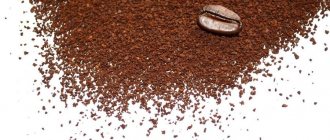Hundreds of millions of people drink coffee every day. However, the controversy surrounding it does not subside. That is why the benefits and harms of coffee for both women and men have been carefully studied in recent years. Scientists are trying to understand what other effects, besides the long-known ones, coffee can have on the body.
According to the National Coffee Association of the United States, more than 50% of adults in the United States drink coffee every day. In Russia the statistics are similar. Around the world, coffee is the second most popular drink after water in many countries. And coffee is the leading source of caffeine in the human diet.
Coffee is not only rich in caffeine, but it is also rich in antioxidants and contains small amounts of micronutrients that your body also needs. However, in addition to its benefits, coffee can cause real harm to the body, as it has many different side effects. Health experts often advise that certain groups of people limit their consumption to avoid adverse health effects.
In this article we will look at the scientific facts about the benefits of coffee. We will pay special attention to the benefits and harms of coffee for women. Since coffee often has a strong impact on women's health.
What is coffee
Coffee is a hot drink brewed from roasted coffee beans, which are the seeds of the berries of the Coffea plant. There are many different varieties of coffee, each different depending on the type of beans used, brand, and preparation method.
There are also several specialty coffee-based products, including coffee flour, coffee scrubs, essential oils, syrups, and even coffee enemas.
Caffeine is a well-known nootropic. These are substances that can enhance human brain performance and cognitive abilities. Therefore, caffeine is available as a dietary supplement in the form of an extract from green coffee beans that have not been roasted or processed.
There are many different types of coffee drinks that go far beyond the traditional cup of joe. Some of them include:
- Cappuccino
- Espresso
- Nitro coffee
- Americano
- Irish coffee
- Latte
- Cafe Mocha
- Keto coffee
- Turkish coffee
- Cafe Macchiato
- Cold coffee
- Cafe Cubano
- Flat white
Coffee - benefits and harm for women
Is coffee harmful?
Now let’s try to understand the benefits of coffee with milk for the human body.
So, the first advantage can be considered energy. That is, coffee awakens the nervous system and thus improves performance. How can regular coffee improve performance, you ask?
In fact, coffee helps the body invigorate and eliminate drowsiness, get rid of lethargy and apathy. So that in general you can concentrate your attention on the subject you need. Few people know that coffee helps the continuous functioning of the gastrointestinal tract.
All these advantages are due to the fact that coffee contains a large amount of acids, antioxidants, and macroelements. They are also rich in calcium, iron, and fluorine. Which help to activate and revitalize your body in the morning, and more.
As we have said more than once, not everyone is recommended to drink coffee with milk. For the majority of the population, coffee is simply contraindicated, but they either do not know about it or ignore this issue.
The coffee drink is prohibited for people who have coronary artery disease, atherosclerosis, or hypertension. It is also worth reducing coffee consumption for those who have kidney problems, glaucoma, and insomnia on a regular basis.
Contraindications to drinking coffee with milk:
- Problems with the gastrointestinal tract: constipation, ulcers, gastritis, dysbacteriosis;
- Diseases of the cardiovascular system;
- Sensitive skin, prone to rashes;
- Individual intolerance to coffee or milk;
A cup of coffee with milk will bring you the most beneficial results in the first half of the day, but after a hearty lunch or on an empty stomach, this is a bad idea that will only bring harm.
Instant coffee is no less popular. It also improves the efficiency and performance of the body. It also increases blood pressure and affects the functioning of the gastrointestinal tract. This type of coffee is highly acidic, which can cause heartburn in people, thereby irritating the stomach lining.
So what is the final conclusion? This is not to say that adding milk or herbal alternatives to coffee is harmful to health. It has been shown that this does not affect the antioxidant activity of coffee beans, but, on the other hand, softens the stimulating effect of caffeine and prolongs it. This combination has never been proven to negatively affect digestion or create harmful substances in the body.
Milk can balance the pH level in the stomach, reducing the irritating effects of acidic coffee. But it is important to be careful about calories, carbohydrates, fats - in excessive quantities, these food components can cause weight gain.
On the other hand, where there is benefit, there is also harm. Coffee with milk is no exception. For those who abuse the drink and drink huge portions, it will be useful to know the negative side.
It should be noted that caffeine is a medicinal substance. When it enters the body in small doses, you don’t have to worry about your health. If more than 10 grams of caffeine enters the body, the coffee gourmet risks leaving this world and dying.
That is why doctors and scientists constantly say that there should be moderation in everything. Four cups of your favorite drink is the very norm that absolutely cannot be exceeded. And for those who like to drink coffee with milk from a large cup, the norm should be reduced to a maximum of 2 per day.
Caffeine has a negative effect on the nervous system. He regularly excites her, eventually leading to exhaustion. The result is stress and disruption of the functional functioning of many organs.
Coffee with milk itself is low in calories. But by adding cream and sugar to it, the drink becomes very fatty. This cooking option is not suitable for losing or maintaining weight. In addition, people prone to lactose allergies will have to give up drinks with dairy products. Otherwise, diarrhea and rash are guaranteed.
There is a lot of the main substance in a cup of coffee. Having diluted caffeine with milk, you should not console yourself with the thought that the drink will not wash away beneficial microelements. The calcium norm will be slightly replenished with the dairy product, and elements such as magnesium, potassium, sodium will be irretrievably lost. You will have to replenish their norm after drinking a cup with other products and nutritional supplements.
Is coffee with milk harmful if decaffeinated beans are used? There is no need to fly in the clouds and think that a decaffeinated drink is less harmful. Quite the contrary. Only dichloromethane (which is what is used in production) can rid the beans of caffeine. And this substance destroys the respiratory system and has a detrimental effect on the entire body.
Not all people can drink a coffee drink, even diluted with milk. Pregnant women should avoid it or significantly reduce their consumption. During the first trimester, the drink is prohibited. It has a detrimental effect on the development of the embryo and can cause miscarriage. Nursing mothers should also forget about it for a while. Its harm to the baby’s body during breastfeeding is colossal.
Children are strictly prohibited from consuming drinks containing high doses of caffeine. It will seriously harm a growing body.
People who are obese should drink coffee with milk with caution. Doctors categorically prohibit such drinks for heart patients and hypertensive patients.
This invigorating drink has a beneficial effect on the human body:
- stimulates the nerves and their system;
- significantly increases performance;
- eliminates drowsiness;
- relieves lethargy and apathy;
- excellent concentration;
- contributes to the normal, problem-free functioning of the gastrointestinal tract.
These positive qualities are due to the composition of the grains, which contain substances such as organic acids, antioxidants, microelements (calcium, iron, fluorine), tonic and tannin substances.
Scientists have proven that a mixture of coffee and milk helps prevent the occurrence of various diseases in humans. These are, for example, type 2 diabetes mellitus, myocardial infarction, Parkison's and Alzheimer's diseases, gallstones and others.
Some experts claim that the drink beloved by many causes significant harm to the body:
- may cause stomach cancer over time;
- enhances the effects of all harmful substances in the human body;
- causes psychological dependence.
Observations were carried out on two groups of coffee drinkers. Some people drank a black, strongly brewed drink, while others drank milk with the addition of milk. So, studies have shown that health problems arose precisely in the second group, that is, among those who drank coffee with milk.
Scientists insist that tannin, which is found in significant quantities in coffee, binds milk protein and prevents it from being absorbed in the body.
But it should be noted that the harm of coffee with milk depends on many factors: the quality, naturalness of the raw materials used for its preparation, the amount of the drink consumed per day. Of course, if you treat yourself to a cup of your favorite cocktail in the morning, it will not have a negative effect on your body. But if you use it several times a day, it will definitely not be beneficial.
What are the health benefits of coffee?
Let's look at the scientific facts about the beneficial properties of coffee for women and men.
High antioxidant content
It may surprise you that many medical practitioners now recommend drinking coffee. That's because some sources show that one of the main health benefits of coffee beans is its powerful antioxidant properties, which may be even stronger than those of cocoa or some forms of tea leaves.
What is the level of antioxidants in coffee compared to other healthy drinks? Research shows that the average cup of coffee may contain more polyphenolic antioxidants than cocoa, green tea, black tea, and herbal tea. While it's still recommended to get most antioxidants from whole foods like fruits and vegetables, coffee can be another good addition. if you love him.
The benefit of coffee for women lies in its ability to effectively fight free radicals. Harmful free radicals damage cells and cause inflammation, thereby speeding up the aging process in the body. The two main antioxidants responsible for most of coffee's benefits are chlorogenic acid and caffeic acid, which can help protect cells from damage and oxidative stress.
Protects Liver Health
Another benefit of drinking coffee is that it improves blood circulation and can stimulate liver function.
For example, a study published in the Archives of Internal Medicine found that increased coffee consumption was associated with lower rates of liver disease progression in people with hepatitis C. Drinking a regular cup of coffee a day reduced the risk of developing alcoholic liver syndrome by 20% (). Another study found that coffee may also protect against cirrhosis, including alcoholic cirrhosis ().
Therefore, if you sometimes treat yourself to alcoholic drinks, drink a cup of strong natural coffee. This will help you protect your liver a little from the harmful effects of alcohol. However, you should not abuse either alcohol or coffee. And to support the liver, it is better to use more effective herbal remedies, such as milk thistle.
Related articles:
- Coffee for intermittent fasting
- Coffee for weight loss - is it possible or not?
Improves physical performance
An impressive benefit of coffee for both women and men is its ability to enhance physical performance, helping to take your workout to the next level. Many studies show that coffee increases alertness and improves mental and physical performance in the short term. According to the study, caffeine does not directly improve maximal oxygen capacity, but it may help increase strength and endurance. Coffee has been shown to increase speed and power output in simulated race conditions and activities that last either a very short time (about 60 seconds) or a long time (two hours) ().
Caffeine is often used as an ergogenic aid before and during prolonged exercise. This is one of the reasons why many endurance athletes and fitness enthusiasts like to drink coffee before heading to the gym or competition, as it is known to improve performance and help improve concentration and stamina.
One scientific report found that when coffee was consumed before and after exercise, strength and athletic gains were significantly faster compared to groups taking a placebo and decaffeinated coffee.
Supports Cognitive Functions
Do you want your mind to be sharp and decisions to be made quickly? The benefits of coffee for women and men as a nootropic are known. Coffee has been shown to increase blood flow to the brain, which helps support cognitive function.
Additionally, coffee and caffeine have been extensively studied as a natural therapy for Alzheimer's disease as well as other neurological diseases. In an animal study conducted by the Florida Alzheimer's Disease Research Center, mice given caffeine in their drinking water from a young age onwards showed protection against memory impairment and lower levels in the brain of an abnormal protein (amyloid-beta or Abeta), which is thought to be central to to the development of Alzheimer's disease. Aging mice with cognitive decline showed memory recovery and decreased levels of Abeta in the brain after just one to two months of caffeine treatment ().
May help prevent diabetes
There is ample evidence that drinking coffee (six or more cups per day) can significantly reduce the risk of developing type 2 diabetes. Drinking two or three cups of coffee per day was associated with a lower incidence of type 2 diabetes in younger and middle-aged women, according to the study. Another large review of 18 studies found that one cup of coffee a day reduced the risk of developing type 2 diabetes by 7% (). Naturally, we are talking about coffee without sugar and milk.
It is believed that chlorogenic acid, one of the main antioxidants found in coffee, may also reduce the absorption of glucose from sugary or high-carbohydrate foods. This may slow the release of sugar into the blood after a meal and may be helpful in preventing insulin resistance.
Women have the largest sweet tooth, so the described benefits of coffee will be more relevant for them.
Promotes Heart Health
Unfiltered coffee is an important source of the antioxidants cafestol and kahweol, which are diterpene compounds that have a positive effect on cholesterol levels. Coffee consumption has been associated in large epidemiological studies with a reduction in mortality from both all causes and cardiovascular diseases ().
In addition, coffee consumption is associated with a lower risk of heart failure and stroke. Surprisingly, coffee is also even associated with a reduced risk of cardiac arrhythmia. Although many people feel that coffee increases their heart rate and general feeling of nervousness.
May have anti-cancer properties
New research suggests there may be a link between coffee consumption and cancer risk. It is noted that this powerful ingredient may protect against several different types of cancer. For example, a review in Scientific Reports notes that drinking coffee is associated with a lower risk of several types of cancer, including cancers of the mouth, pharynx, colon, liver, prostate, endometrium, and melanoma ().
Increases fat burning
The biggest benefit of coffee for women is that this delicious drink promotes weight loss. Research shows that coffee can help increase fat burning and metabolism to enhance weight loss. According to a study published in the Annals of Nutrition & Metabolism, caffeine was able to increase metabolism by an average of 7% within three hours of consumption (). Note that it is best to minimize the use of added sugars or creamer or stick to unsweetened coffee to reduce the amount of black coffee calories you consume.
The effect of coffee on the functioning of the female body
The caffeine content in the aromatic drink can be, depending on the variety, up to 1500 mg per liter. This concentration has a pronounced psychostimulating effect on the nervous system, leads to an acceleration of cardiac activity and an increase in blood pressure, which increases the risk of cardiovascular diseases.
Drinking large amounts of coffee every day can be addictive
It is these processes that lead to the fact that we feel the effect of vivacity and a surge of strength, increased mental and physical performance. However, the effect of caffeine on the body lasts only a few hours, and then a completely opposite effect is observed. A person feels a loss of strength, fatigue, and an urgent need for a new cup of drink. This is how caffeine addiction is formed, which means the systematic use of high doses of caffeine (more than 1000 mg per day). Thus, consuming 5 or more standard 200 milliliter cups can lead to addiction and harm your health. We list the possible negative consequences of coffee abuse for the female body:
- Disorders of the nervous system.
- Menstrual irregularities.
- Increased risk of infertility.
- The appearance of swelling in the legs and face (due to fluid retention in the body).
- The appearance of cellulite and wrinkles.
- Darkening of tooth enamel.
Of course, there are benefits of coffee for women, but for women’s health it is important not to get carried away with this drink and limit yourself to 2-3 cups a day to avoid serious negative reactions.
On the heart and blood vessels
Drinking coffee in large quantities, as noted earlier, leads to a significant increase in cardiac activity, increased heart rate and vascular stimulation. Many hypotensive people are interested in whether they can drink this drink in order to bring low blood pressure levels back to normal.
Important. Caffeine is ineffective for normalizing blood pressure, since the effect of this substance on the cardiovascular system is short-term. By increasing the amount of coffee consumed, a person suffering from low blood pressure only worsens this problem, simultaneously creating additional stress on the heart and blood vessels.
If you have a hereditary predisposition to cardiovascular diseases, it is also better not to joke with the use of this drink. For a woman's health, coffee brewed in a coffee maker will cause the least harm - the caffeine content with this method of preparation will be minimal, and the benefits will be the same as with other brewing methods.
People with heart problems should limit their coffee intake
To the liver
Research has proven that the liver perceives the drink as a foreign substance, and therefore this organ actively fights the caffeine entering the body. With frequent consumption of this drink, the liver may not be able to cope with the implementation of its processing function, which will lead to disruptions in its functioning.
At the same time, many doctors believe that caffeine is extremely beneficial for the liver, especially for people with a predisposition to liver diseases. For example, the intake of this substance into the body leads to a decrease in the proportion of substances that initiate the development of hepatitis. This leads to increased resistance of the body to this dangerous disease. However, it is worth noting that only drinking natural bean coffee in reasonable quantities has such a beneficial effect.
On the kidneys
The effect of coffee on the kidneys can be assessed as rather negative. It is this organ that is involved in removing caffeine from the body.
Important. About 10% of caffeine is not processed by the human body and is excreted unchanged by the kidneys.
Thus, large doses can lead to unnecessary stress on the kidneys, which, in turn, leads to such consequences as:
- excessive fluid loss;
- disturbance of electrolyte and mineral metabolism of the body;
- impaired absorption of potassium and calcium;
- formation of sand and stones.
In this regard, coffee consumption should be taken with caution by people suffering from acute and chronic kidney disease, or having a hereditary predisposition to it.
Drinking large amounts of coffee negatively affects kidney function
For metabolism
Coffee helps speed up metabolism. So, one cup of this drink can increase the metabolic rate by about 4%. This occurs due to the acceleration of the calorie burning process as a result of increased heart function. However, such a beneficial effect can only be achieved by drinking natural, freshly brewed coffee.
On the nervous system
Coffee has a stimulating effect on the body, and abuse of this drink is extremely harmful to the nervous system: even after one cup it experiences severe stress. But daily consumption in unreasonable quantities can lead to depletion of nerve cells, which, in turn, provokes the development of mental disorders: depression, anxiety, psychosis, increased aggressiveness.
On the digestive system
If we consider the effect that coffee has on the digestive system, we can note the benefits of this drink for the body. First of all, this is achieved due to the fact that it improves intestinal motility and has a diuretic effect. Thanks to frequent urination, toxins are removed from the body, and improved functioning of the muscles of the gastrointestinal tract normalizes bowel movements and makes them more regular.
Nutritional value of coffee
The two most common types of coffee are Arabica and Robusta. Although coffee is not an important source of vitamins and minerals in your diet, it is a much better choice than energy drinks, sodas, and sweetened teas or juices. It contains no sugar or carbohydrates and virtually no calories, making it suitable for almost all diets, including vegan, paleo and keto.
One 250 ml cup of coffee contains:
- Calorie content - 2.4 kcal
- Proteins - 0.3 g.
- Riboflavin - 0.2 mg (11%)
- Pantothenic acid - 0.6 mg (6%)
- Potassium - 116 mg (3%)
- Manganese - 0.1 mg (3%)
- Magnesium - 7.1 mg (2%)
- Niacin - 0.5 mg (2%)
How much caffeine is in coffee? Levels may vary slightly depending on factors such as bean type, brand, and coffee preparation method. For example, a standard cup from Starbucks is known to contain much more caffeine than the average medium roast coffee you make at home.
On average, a 250 ml cup of brewed coffee from ground beans contains about 95 mg of caffeine. Meanwhile, the same size cup from Starbucks contains a whopping 155 mg. In contrast, an average espresso contains about 64 mg, and a cup of green tea contains about 44 mg. This means that drinking a cup of coffee from Starbucks will give you more than three times more caffeine than green tea made with one tea bag.
Coffee from coffee shops contains more caffeine per cup of coffee.
History of coffee and benefits of coffee in folk medicine
Coffee is a centuries-old drink made from roasted coffee beans, which are the seeds of the coffee fruit from the Coffey tree. Records show that coffee has been consumed for over 500 years, dating back to the 15th century when it was first drunk by people living in Yemen during religious ceremonies.
It is also believed to have healing properties. According to Traditional Chinese Medicine, coffee stimulates the liver, helps regulate menstruation, and cleanses the gallbladder to protect against gallstone formation.
In recent years, many of the hidden health benefits of coffee have come to light as more and more research is conducted.
Today, coffee beans are grown in more than 70 countries around the world, mostly in warm tropical regions along the equator such as Central and South America, Southeast Asia, India and Africa.
Coffee with milk: types of drinks
No matter how you drink your coffee (without milk, with milk, with or without sugar, with whipped cream and syrup), when you add certain ingredients, the drink becomes a bigger, more insidious calorie bomb than you think.
In particular, dairy products and sugar increase the fat and calorie content. For example, a latte (coffee with a large dose of milk) is comparable in energy value to a hamburger! Turkish coffee:
- Coffee beans water.
- Kcal: practically none.
- Fat: none.
Espresso:
- Coffee beans water sometimes milk.
- Kcal: small portion – 11, large – 20 (more when adding sugar, milk).
- Fat: none (provided no other ingredients are added).
Cappuccino:
- Espresso hot frothed milk.
- Kcal: small portion – 120, large – 200.
- Fat: small portion – 6 g, large portion – 10 g.
Latte:
- Espresso hot milk.
- Kcal: small portion – 200, large – 350.
- Fat: small portion – 10 g, large portion – 18 g.
Fans of this aromatic drink, defending coffee, give a lot of arguments that prove its positive effect on the body. Many doctors and scientists agree that this hot drink, with or without milk, does have a beneficial effect on a person. To answer for yourself what the benefits of coffee with milk can be, we suggest studying its composition and magical properties.
Caffeine is a substance that coffee beans are rich in. It is he who is able, by stimulating the nervous system, to accelerate the activity of many vital processes. Caffeine affects the heart. It speeds up the work of the main muscle, which leads to an increase in the rate of blood circulation, and this is directly related to the brain. The higher the blood pressure, the more active the brain is.
Diuretic properties
Many people have noticed that after coffee (especially if you drink not a fancy cup of coffee, but a decent glass), you quickly want to go to the toilet. This is no accident. The drink is recognized as one of the most powerful diuretics. For this reason, some nutritionists even advise obese people to include coffee with milk (without sugar) in their daily diet.
World experts have come to the conclusion that a dairy product and roasted coffee granules, when combined, cannot interact chemically. This indicates that by pouring it into a cup and diluting it with milk, the amount of caffeine will decrease, while the benefits of the main product (brewed ground roasted beans) will be preserved and will be absorbed into the body. What's the benefit?
- Dairy products can reduce the loss of calcium when removing fluid from the body;
- The drink has a warming ability, which is very important during the cold season, especially in winter.
The drink is rich in antioxidants, which, by affecting the epidermis, slow down cell aging. It contains fats, the main task of which is to open the membranes and nourish the cell nucleus with useful substances. The result is that every cell is strengthened. It has been noticed that coffee gourmets (provided they drink their favorite drink with milk) do not suffer from hair loss.
We can conclude that such a drink with milk is healthy and its effect on the body is positive.
A fragrant cup of coffee lifts your spirits and invigorates you all day. Although there is a significant category of people who do not use it at all. Some people prefer to soften strongly brewed coffee with milk. Therefore, the question often arises: is it good or bad to drink coffee with milk?
There are many varieties of this drink, but the most popular among them are the following:
- latte (only frothed milk is used for it, and it is taken in three parts per one brewed drink);
- latte macchiato is a three-layer drink where coffee powder is added very carefully, without haste;
- cappuccino - the technology for preparing this drink requires equal shares of the main components.
It is known that the coffee component of this drink has no calories at all. It can be freely ignored. Therefore, the energy value of the drink depends on dairy products and sugar.
How many calories milk or cream has is usually written on the packaging. For example, 100 ml of milk with a fat content of 2.5% contains approximately 22.5 kcal. The calorie content of this drink depends on the amount of fat. People on diets add skim milk to their coffee.
Sugar contains (per teaspoon) approximately 32 kcal. If you add it to coffee with milk, the calorie content increases significantly. Therefore, it is better to drink the drink in its natural form, without sugar.
For the majority of the population, a cup of black coffee in the morning is already a ritual. Some even believe that the day is lost without a cup of coffee, and their mood may depend on the consumption of such a drink.
Those who cannot drink large quantities of coffee choose coffee with milk. And there are now more than enough such varieties of coffee. Let's try to figure out the most popular coffee with milk and more:
- Latte - this drink is known throughout the world, it was invented by the Italians. He is adored by both young and old. Delicate creamy taste and incredibly delicate foam that will infuse the taste of the clouds. When preparing this drink, foamed milk is usually used and combined with coffee in a three to one ratio. That is, coffee should fill 1/3 of the space of the mug.
- Latte macchiato - all the ingredients in this drink are similar to latte, but the whole trick is the three-layer coffee. Coffee is poured into the warm milk in a thin stream, and the most delicate milk foam goes to the top. And you get a three-layer coffee drink.
- Cappuccino. This drink can be called a classic. Since it includes only 2 components: coffee and milk in equal proportions.
In its pure form, coffee has no calorie content, and it can be safely ignored, but the energy value of the drink, that is, sugar, milk, etc. it's up to your taste and color. Therefore, you can calculate the calorie content by the added amount of cream and sugar. Those who are concerned about calories can add skim milk.
Harm of coffee for women and men
Although caffeine and coffee have many benefits, there are several disadvantages of coffee as well as negative effects of caffeine.
Addictive
Consuming too much caffeine can be addictive, leading to overdose. There is a danger that this may lead to overstimulation of the body.
Caffeine withdrawal can lead to headaches, anxiety, irritability, trouble concentrating, fatigue, digestive problems and changes in appetite.
Excessive coffee consumption can also cause fatigued adrenal syndrome.
May cause digestive problems
Nausea, vomiting and diarrhea are just some of the possible side effects associated with drinking coffee. They are associated with the laxative effect of coffee, which is caused by the release of gastrin, a hormone that stimulates movement in the digestive tract. Research also shows that caffeine may worsen symptoms of gastroesophageal reflux disease (GERD), which is a condition characterized by heartburn, nausea and belching.
May alter mood and increase anxiety
The caffeine in coffee has the ability to affect hormones, neurotransmitters, nerve signals and muscles. This is especially true if you have existing health conditions - such as anxiety, heart problems or diabetes. Or if you drink coffee to help change how you feel and get rid of fatigue. Because caffeine increases alertness and releases adrenaline, it can worsen anxiety and nervousness. So one of the benefits of giving up coffee and other stimulants may be an improvement in your mood, especially if you suffer from ongoing stress or chronic anxiety.
May contain many calories
Many women drink coffee only with sugar or milk, but there is no benefit from such coffee, only harm.
In this case, all the benefits of coffee as a means of losing weight disappear. Drinking coffee with sugar and cream can cause you to accumulate extra calories, which will ultimately hinder your overall weight loss. A good coffee option for weight loss is to simply enjoy your coffee black or use a natural low-calorie sweetener like stevia to add a hint of flavor. Almond milk, oat milk, or cinnamon and honey are some other easy ways to enjoy your cup of coffee without packing on the extra pounds.
Interferes with the absorption of minerals
Coffee seriously interferes with the absorption of vitamins and minerals from foods and dietary supplements. This fact is especially important for women. Because it is women who most often suffer from anemia, which is caused by a deficiency of iron or vitamin B12. But when a woman starts taking iron supplements to treat anemia, the iron will not be absorbed if she drinks it with coffee.
Coffee binds not only iron, but also zinc, copper, manganese and many vitamins. Therefore, if you are eliminating a deficiency condition, it is recommended to completely eliminate coffee from your diet. Otherwise, coffee causes you a lot of harm without bringing any benefit.
Not recommended for some people
In moderation, coffee can be safely consumed by most people as part of a healthy diet. However, there are several categories of people who should not consume caffeine in general.
Children, for example, have long been advised to avoid drinking coffee because of its potential effects on growth and development. It has been proven that coffee can cause problems such as hyperactivity and insomnia.
Coffee is also not recommended for teenagers.
Pregnant women should also limit their caffeine intake to 200 mg per day to prevent adverse birth outcomes and birth defects.
Antioxidants are contained only in natural, non-sublimated coffee.
Properties of coffee
The drink owes its properties to the caffeine content in it.
The properties of the drink are due to the high content of a substance such as caffeine, due to which it is classified as a harmful product. However, those who regularly drink this drink will certainly note that it has significant benefits: for example, increased performance, endurance, and improved brain function. And for people suffering from low blood pressure, it is a “savior” that allows them to maintain their body in good shape.
If we analyze the data of modern scientific research, we can conclude: the idea that coffee is harmful for women is nothing more than a myth. Of course, this drink still has a negative effect on the body, but the benefits of coffee for the female body are also difficult to overestimate. In particular, moderate consumption of a caffeinated aromatic beverage can:
- improve attention and memory;
- prevent the development of stress and depression;
- increase the body's resistance to various diseases;
- prevent asthma, atherosclerosis, diabetes, cholelithiasis;
- reduce the risk of heart attack, liver, pancreatic, colon and rectal cancer, as well as Parkinson’s disease;
- fight the aging process in the body.
Speaking about the benefits of coffee for women, we also note its high content of vitamins A, B and C, as well as minerals (potassium, magnesium, iron and calcium). These substances help improve the condition of the skin, hair and nails, prevent skin aging, and improve the functioning of the nervous system.
At the same time, abuse can cause negative consequences for the female body, which will be discussed below.
Coffee contains many beneficial vitamins and minerals
Harm
The harm that coffee can cause to the body is associated with the caffeine content in it, which has a strong effect on the nervous system and other organs. In small concentrations, caffeine is absolutely harmless, but if consumed regularly in large quantities, it can cause a serious blow to the functioning of internal organs. Speaking about the dangers of coffee, it is worth noting that this drink is especially dangerous for women, since the body of the fair sex is more sensitive to the effects of harmful substances in comparison with the male body.
Benefits of Coffee vs Green Tea
The health benefits and harms of coffee and tea for women have been extensively studied, and there are a number of similarities between the potential health benefits of tea and coffee. Both contain caffeine plus antioxidants and have been shown to protect against chronic disease, free radical damage and inflammation.
However, green tea contains much less caffeine, which may be beneficial for those who want to reduce their consumption. It also contains antioxidants such as epigallocatechin gallate (EGCG), which contributes to many powerful health benefits. Like coffee, green tea is shown to improve heart health, lower blood sugar, support cognitive function and increase weight loss. Because it contains less caffeine, it is better tolerated by those with certain health problems or those who are sensitive to its effects.
Which coffee is better, natural or instant?
Preference should be given to natural coffee.
Each person has his own specific tastes and preferences, including coffee. The instant version of this drink is easy to use and most people find preparing it this way ideal for the morning. However, it is no secret that soluble powder poured with boiling water is significantly inferior in taste to a natural freshly brewed drink. In addition, if you analyze the beneficial and harmful properties for the body, you can come to the conclusion that brewed coffee has a minimum of negative health effects. Therefore, if you cannot refuse this drink, train yourself to drink several cups of natural espresso per day. It is better to avoid sugar, and milk will help make the taste milder. This is the most reasonable option in terms of health benefits and harm.
Healthy Coffee Alternatives
If you're trying to cut back on your caffeine intake or are simply looking for other healthy drinks to add to your morning routine, here are some healthy coffee alternatives you might consider:
- Chicory. Made from chicory root rather than coffee beans, chicory coffee has a nutty, slightly woody flavor and is used as a popular substitute for regular decaf coffee.
- Lemon water. Swapping your coffee for lemon water is an easy way to stay hydrated and refreshed, while also giving your body a generous dose of vitamin C.
- Mushroom coffee. This type of coffee is half regular coffee and half mushroom extract, providing the benefits of both while reducing the caffeine content of the drink.
- Tea . Available in green, black, white or herbal tea varieties, tea is an antioxidant-rich alternative to coffee that contains less caffeine but contains many of the same polyphenols and flavonoids.
- Kombucha. Made from fermented tea, this sparkling drink contains probiotics and health benefits to help you get through your morning.
- Turmeric latte. This soothing hot drink is made using a blend of spices such as turmeric, cinnamon, black pepper and ginger root powder, all mixed in a combination of almond milk and ghee.
Coffee and caffeine at a young age
At a young age, the most harmful foods and drinks do not cause as many problems. The body copes with stress. But the further you go, the more your immune system suffers. Along with it, other systems of the body.
Most young people eat haphazardly, which is why many diseases have become younger. If previously gout could only be found in the elderly, now young people are hospitalized with kidney disease because uric acid is deposited in their joints and causes severe pain.
The imbalance between the water given away and the water consumed, which was known back in the Ancient East, where the coffee culture came from.
When planning a pregnancy, you need to be careful when drinking coffee, as it affects the production of sex hormones, the lack of which affects the maturation of the egg and its release from the follicle.
If conception does occur, bearing a child with a lack of progesterone is impossible. Therefore, young families planning the birth of a baby need to be more attentive to the foods and drinks on their table.
Precautionary measures
Want to know how much you need to drink to reap the health benefits without harming your body? Also, is it good to drink coffee every day, and can you drink coffee on an empty stomach?
A moderate amount for healthy adults is 300-500 mg of caffeine per day, which is about five cups of regular home coffee or a little more than one Starbucks Vent (which contains about 410 mg).
For pregnant women, this amount is lower - about 200 mg per day or less, although many pregnant women still choose not to drink anything at all to minimize the potential risk from coffee.
Most medical experts ideally recommend drinking one to two cups per day, which is not associated with negative reactions but appears to be beneficial for most people.
What are the side effects of coffee? Some of the most common symptoms include nausea, vomiting, diarrhea, anxiety, insomnia and headaches. Many of these are related to caffeine consumption, so for those who experience persistent side effects, it is recommended to reduce your caffeine intake or take advantage of the benefits of decaffeinated coffee.
Final Thoughts
- Coffee is a drink made from roasted coffee beans, which are obtained from the berries of the Coffea plant.
- Coffee contains several antioxidants and small amounts of riboflavin, pantothenic acid, potassium and manganese. The caffeine content of coffee can vary depending on many different factors, but the average cup contains about 95 mg of caffeine.
- Health benefits of coffee for women and men include: improved cognitive function, liver health, physical performance and fat burning.
- Is coffee harmful for women and men? Despite its potential benefits, there are disadvantages associated with coffee consumption. It can be addictive, increase anxiety, and cause digestive problems.
- However, in moderation, coffee can be enjoyed as an excellent addition to a balanced, healthy diet for most people.
Contraindications for drinking coffee
Despite its popularity, the drink has a number of contraindications, due to which some people should completely abandon this drink. These are diseases such as:
- disorders of the heart and blood vessels;
- glaucoma;
- atherosclerosis;
Women during menstruation, pregnant and lactating women, as well as people over 60 years of age should be especially careful when drinking coffee.
Is it possible to drink coffee during pregnancy and breastfeeding?
During pregnancy, you should limit your coffee consumption as much as possible.
Despite the beneficial properties that coffee has for the body, drinking it is extremely undesirable for pregnant women and breastfeeding mothers. Pregnancy is a delicate state of the female body, and drinking coffee can lead to the development of gestational diabetes in the unborn child, causing growth retardation and insufficient weight gain. Caffeine consumed by pregnant and lactating women can also lead to various cardiovascular diseases, disorders of the nervous system in the child, as well as sleep disorders.
Nutritionist opinion
According to nutritionists, drinking coffee will not cause serious harm to the body, and thanks to its ability to speed up metabolism, the drink can help you lose weight and cleanse yourself of toxins. At the same time, if you constantly drink a sugary drink, you can upset the balance of proteins, fats and carbohydrates consumed by the body, which can lead to weight gain in women.
Coffee is a healthy product provided it is consumed in moderation and there are no contraindications. By limiting your intake of this drink to a maximum of a few cups per day, you can enjoy your favorite drink without jeopardizing your health.











